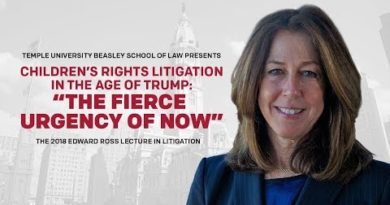Could You Be a Contestant in: “Worst Witness Ever?”
Today Bloomberg is reporting that one of the attorneys representing convicted FTX founder Sam Bankman-Fried named his client as the worst cross examination witness he has ever seen. That’s quite an indictment in its own regard although, respectfully, it would seem to reflect back on the lawyer who presented him as a defense witness and was supposed to prepare him for cross examination.
Criminal clients and their attorneys get to decide if they will testify but they also know that once they choose to take the stand, the prosecution attorneys will circle like sharks in the water. In this case I suspect that Mr. Bankman-Fried was advised not to testify but then reversed engines at the last moment and thought he could charm the jury into believing that all his co-workers were lying and that he was the just another victim of a scheme that once made him worth $16,000,000,000. The classy thing for a defense lawyer to have said was that he was caught off-guard by his client’s desire to testify. This attorney is not a fan of lawyers who decide that trials are like post game press conferences where the coach trashes the team that he led.
But back to the main stage. In the divorce world and the civil trial world generally, a party doesn’t have a choice about whether to testify. Your opponent can call you as a witness even if you don’t want to be there. Moreover, in most family law cases it is the married couple or the children’s parents who are the best, if not, exclusive source of what happened in a family. So, if you take a matter to hearing you need to be ready to testify.
Now, that shouldn’t be a problem, right? After all, you are the good guy/girl in the case. You did everything right. You were cheated on, stolen from, denied access to your adoring children or beaten to a pulp because you didn’t put the trash out. That’s what you told your lawyer because it’s true and irrefutable.
If it were only true. Unfortunately, there really are two sides to almost every story. And we all tend to recall our best facts better than our worst. Family law also complicates matters. Most civil cases go to trial after there has been lots of pretrial discovery including depositions of the witnesses and parties to full explore all the facts. Family lawyers are usually constrained from this by the costs associated with sitting through hours of depositions. Clients are not high on that investment. “After all, why waste the money when I will tell the truth, my husband will lie through his rotten teeth and the judge will instantly see that justice prevails.”
People really do see things that way. Alas, there are times when lawyers leave a trial wondering whether what they heard had anything to do with what they were told going in. I still recall the “faithful husband” I represented who told his wife each year he could not be home until late Christmas Eve because that’s when his firm had its office holiday party. Now candidly, the office holiday party was not on my list of questions to ask my client either before or during the trial. But, that tidbit, unrefuted by the client sitting next to me really changed the course of the proceedings and not in a good way for my client.
Depositions are underutilized but again, I understand why clients are chary to endure the time and expense. But preparation for your testimony with your attorney is indispensable. We live in a world where almost every document you will see in a trial is produced in advance. As a party you need to have looked through every one of those documents. The goal is not to memorize, but to try to track what you are looking at and why your lawyer or the nasty one are wanting them in evidence. When you sit in a witness box and profess to not know whether that’s your bank statement or tax return, you look stupid at best and dissembling at worst.
Don’t ever fight with your lawyer in court. Don’t every fight with the nasty lawyer representing your spouse and DON’T TALK OVER THE JUDGE. Be calm. Politely disagree. If the question is unfair and there is no objection by your lawyer, try to answer the question is a way that makes your answer sound fair. Don’t try to be your own lawyer as we saw Michael Cohen do in the Trump civil trial in New York. He objected to questions. They may have been sound objections, but witnesses don’t get to object. Lawyers do that fighting. Witnesses who fight inevitably look small and untrustworthy. In coordination with your lawyer, your mission is to educate the judge. It is not to repudiate or condescend to the other side.
One of the techniques we saw last week in the Congressional hearings was something called a “compound question.” They come out as: “Do you agree that the protests we saw on campus last month by Hamas led students was conduct which threatened the rights of Jewish students to oppose the genocide committed on October 7, yes or no?” There are many facts and interpretive phrases packed into such a question which make a yes or no response well nigh impossible. Sometimes lawyers ask these questions for drama. Sometimes lawyers don’t know how to pose questions. And, sometimes judges will overrule objections to poor questions because they sense the lawyer involved doesn’t know how to phrase the question properly and…..life must go on. In those instances, your job as a witness is to answer that you are prepared to answer the question but the facts and conclusions need to be unpacked. Suppose the judge insists you answer the question? Answer: “Sorry your honor, I can’t do that. The question has too many moving parts.”
I try to ask clients in initial interviews and in case preparation; “What’s the place you think they will attack you.” I also try to tell clients where I expect turbulence and how to manage it.
A trial is about your kids or your money. If they are important, spend some time with your trial lawyer discussing how to stay out of the “Worst witness” competition.






